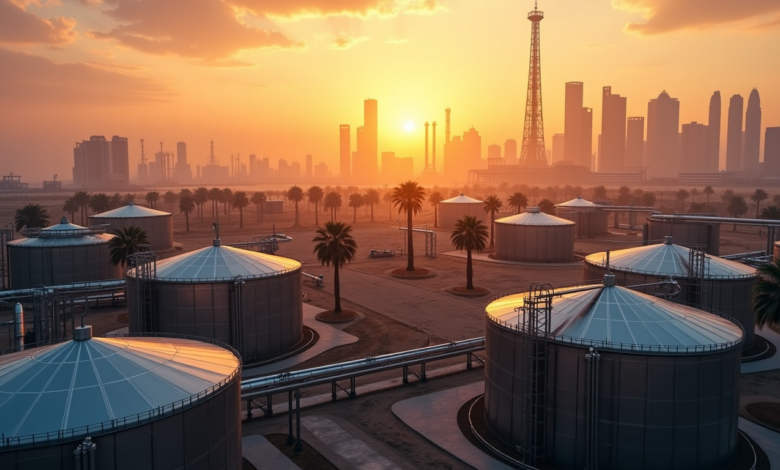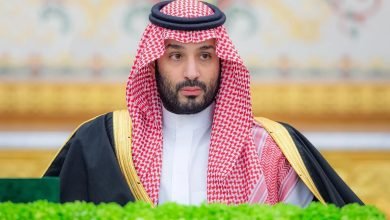
GCC Countries’ Economy Set to Expand by 4.5% in 2025
The Gulf Cooperation Council (GCC) countries stand as one of the world’s most economically vibrant regions and control nearly 40% of global oil reserves. These six nations are set to achieve remarkable economic momentum, with projections that indicate a 4.5% GDP growth in 2025. Their strong performance over the last several years proves the vitality of their economic framework.
GCC member countries’ collective strength remains rooted in their hydrocarbon wealth, yet their economic world shows clear signs of diversification. Leading financial institutions express how the GCC economy will grow at 4.5% in 2025, supported by energy market stability and economic transformation initiatives. This growth trajectory sets the Gulf states on a path to prosperity while they advance their ambitious development plans.
Oil Production Dynamics
OPEC+ production decisions shape the oil sector’s landscape in GCC countries and have a major impact on their economic growth. The organization now keeps production cuts of 5.86 million barrels per day, which makes up about 5.7% of global demand. OPEC+ plans to extend cuts of 3.66 million bpd through 2025 as part of their production strategy.
The United Arab Emirates has set bold expansion plans. ADNOC wants to boost its production capacity to 5 million barrels per day by 2027. This new timeline moves up their original 2030 target and shows UAE’s rising influence in global energy markets. The country’s position grew stronger after discovering 2 billion stock tank barrels of oil and 1 trillion standard cubic feet of natural gas in 2022.
GCC’s 2025 outlook will be shaped by these production changes:
- Production cuts of 2.2 million bpd will start unwinding from April 2025
- UAE received approval to increase production by 300,000 bpd through September 2026
- Current production cuts will stay in place until 2026 ends
These oil production changes should help the GCC economy grow by 4.5% in 2025. We expect this growth because OPEC+ will relax production quotas in late 2024. New gas field development and smart quota management will help GCC member countries maintain steady growth in their hydrocarbon sector.
Economic Diversification Progress
The non-oil sector powers economic growth in GCC countries steadily, as recent data reveals a solid 3.7% expansion. The UAE leads this economic shift impressively with its non-oil GDP jumping to 6.7% in Q4 2023. These numbers prove the success of their economic transformation plans.
GCC countries and Iraq show their dedication to change through massive infrastructure projects. They plan to invest AED 3.67 trillion in new construction by 2030. Some notable achievements stand out:
- Dubai has set aside AED 15 billion for Expo 2020-related infrastructure
- Saudi Arabia has put USD 400 million into nine major road projects
- UAE’s non-oil foreign goods trade has reached AED 2.4 trillion in 2023
Saudi Arabia pushes technology boundaries with a AED 73.44 billion investment in artificial intelligence. This tech push adds value to traditional sectors, as shown by Dubai’s tourism growth of 11% early in 2024.
Women’s role in the workforce tells a powerful story of social change. Saudi Arabia has seen women’s workforce participation soar from 17.4% in early 2017 to 36% in early 2023. The private sector welcomes this shift, with Saudi private employment reaching 2.6 million in early 2023.
Innovation thrives throughout GCC member countries. The UAE’s patent grants have grown at 41% annually from 2015 to 2022. These advances, plus mutually beneficial alliances worth AED 36.72 billion in Dubai, set the stage for lasting economic growth and diversification in the GCC region.
Country-Specific Growth Analysis
GCC member countries show different economic strengths as they head into 2025. The United Arab Emirates guides the region with a projected growth rate of 4.9%. This makes UAE the strongest performer among GCC countries. The nation’s reliable performance comes from knowing how to increase oil production earlier than other OPEC+ members.
Saudi Arabia, the region’s largest economy, predicts its growth will speed up to 4.4% in 2025. The Kingdom builds this growth on progress made in its Vision 2030 initiatives. The non-oil private sector showed remarkable strength and grew by 4.5% in the first half of 2023.
Key growth projections for other GCC members include:
- Qatar: 2.7% growth expected in 2025
- Bahrain: 2.8% forecast for 2025
- Kuwait: 2.5% projected expansion
- Oman: 2.8% predicted growth
Strong business confidence boosts the region’s economic outlook. PMI readings show solid growth in GCC countries. Strategic collaborations stimulate development through sovereign wealth funds like Saudi Arabia’s Public Investment Fund and UAE’s Mubadala. These institutions reshape the economic scene by supporting domestic growth and international investments in renewable energy. GCC sovereign wealth funds contribute 29% of sovereign investment into renewables.
Tourism sector growth adds to these economies’ strength. Saudi Arabia became the second-fastest growing tourism destination globally in early 2023. This success in diversification pairs with strategic infrastructure investments and business-friendly reforms. These factors position GCC member countries to sustain their growth through 2025.
GCC countries face a defining moment as their economy shows promising signs of 4.5% growth by 2025. This growth stems from their traditional strengths and breakthrough achievements. OPEC+ decisions on strategic oil production management create a stable foundation for economic expansion. The region’s adaptability shines through successful diversification efforts. The UAE leads with 4.9% projected growth, while Saudi Arabia follows with a strong 4.4% forecast. These numbers express the success of economic transformation programs in GCC member countries.
GCC nations know how to balance hydrocarbon sector optimization with bold development goals. Their economic transformation runs deep through major infrastructure investments, tech advancement initiatives, and increased female workforce participation. Patent grants continue to rise, tourism sectors expand, and sovereign wealth funds grow stronger – all pointing to sustained growth ahead. The smart combination of resource management and diversification success sets GCC countries on a path to prosperity beyond 2025. These nations continue their progress into vibrant, multi-faceted economies.






